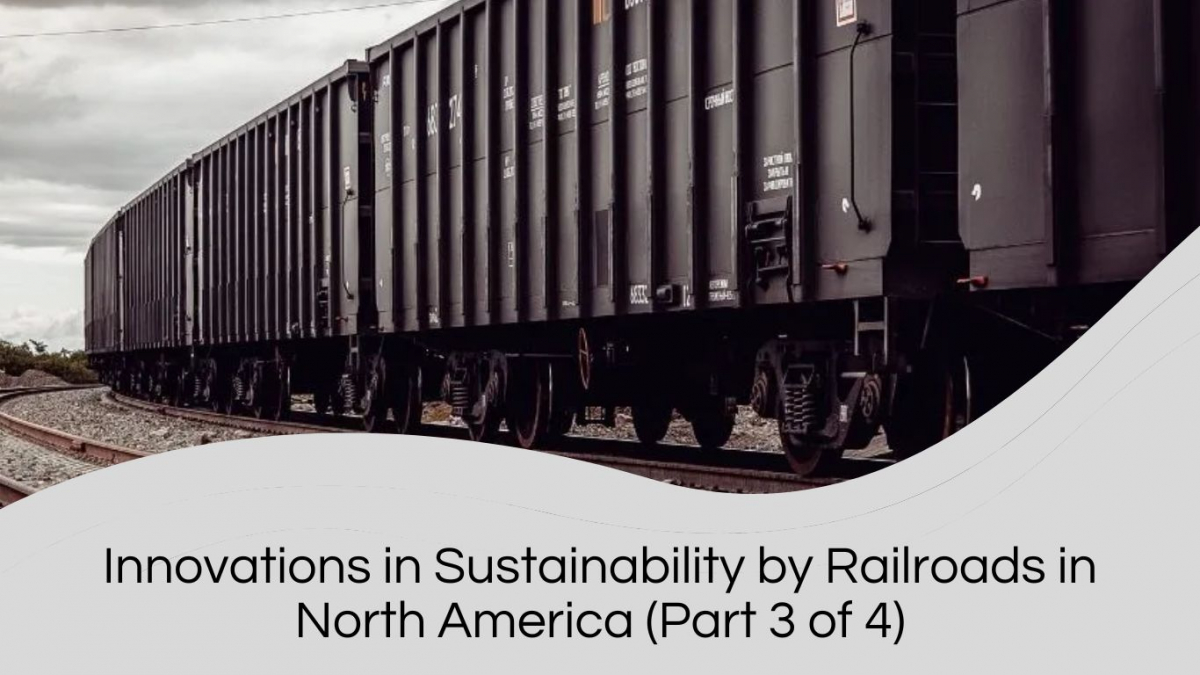Advanced Locomotive Technologies:
One of the key areas of focus in enhancing rail freight sustainability is the development of advanced locomotive technologies. These technologies aim to improve fuel efficiency and reduce emissions. Hybrid locomotives, for example, combine traditional diesel engines with energy storage systems, such as batteries or ultracapacitors. By utilizing stored energy during acceleration, hybrid locomotives reduce fuel consumption and emissions.
Another innovation is the implementation of regenerative braking systems. When a train brakes, the kinetic energy is converted into electrical energy, which can be stored and used later to power the locomotive or other onboard systems. This technology improves overall energy efficiency and reduces fuel consumption.
Efficient traction control systems also play a significant role in sustainability. These systems optimize the distribution of tractive effort between locomotives, minimizing energy waste and maximizing fuel efficiency. By precisely controlling power distribution, trains can operate at peak performance levels while minimizing emissions.
Alternative Fuel Adoption:
The rail freight industry is increasingly adopting alternative fuels as a means to reduce greenhouse gas emissions and improve air quality along rail corridors. Biodiesel, derived from renewable sources such as soybean oil or waste vegetable oil, is one such fuel gaining popularity. It can be blended with traditional diesel and used in existing locomotives without requiring major modifications.
Natural gas is another alternative fuel being explored in rail freight operations. Liquefied natural gas (LNG) offers lower carbon emissions compared to diesel and can be used as a fuel source for locomotives. The use of LNG can significantly reduce greenhouse gas emissions, making rail freight a more environmentally friendly choice.
Moreover, hydrogen fuel cells are emerging as a promising option. They generate electricity through a chemical reaction between hydrogen and oxygen, producing only water vapor as a byproduct. Hydrogen-powered locomotives have the potential to eliminate carbon emissions entirely, paving the way for a truly sustainable rail freight system.
Energy Management Systems:
Energy management systems are crucial for optimizing locomotive operations and reducing fuel consumption. These systems incorporate advanced algorithms and real-time data to make informed decisions about engine idling, train handling, and load balancing.
Engine idling reduction is achieved by automatically shutting down locomotive engines when they are not required, such as during extended stops or layovers. By minimizing unnecessary idling, energy management systems significantly reduce fuel consumption and emissions.
Improved train handling algorithms optimize the distribution of power and braking forces across the train, ensuring smooth and efficient operations. By reducing unnecessary energy wastage, these systems contribute to fuel efficiency and emissions reduction.
Load balancing algorithms ensure that each locomotive within a train operates at its optimal power level, considering factors such as train weight, gradient, and speed. By maintaining an optimal power distribution, load balancing systems improve overall efficiency and fuel economy.
Sustainable Infrastructure:
The rail freight industry is actively integrating sustainable practices into infrastructure design and maintenance. Recycled materials are increasingly being used in construction projects, reducing the demand for new resources and minimizing waste. Additionally, eco-friendly construction methods, such as using low-carbon concrete or sustainable timber, are being adopted to minimize environmental impact.
Rail yards and terminals are implementing sustainable drainage systems, which collect and treat rainwater runoff. These systems prevent pollutants from entering waterways and contribute to maintaining a healthier ecosystem along rail corridors.
The rail freight industry in North America is making remarkable strides in environmental sustainability through innovative solutions and collaborative efforts. Advanced locomotive technologies, including hybrid systems and regenerative braking, are improving fuel efficiency and reducing emissions. The adoption of alternative fuels like biodiesel, natural gas, and hydrogen is reducing greenhouse gas emissions and promoting cleaner air along rail corridors. Energy management systems optimize locomotive operations, minimizing fuel consumption and unnecessary idling. Sustainable infrastructure practices, such as using recycled materials and implementing eco-friendly construction methods, further contribute to reducing the industry's environmental impact.

